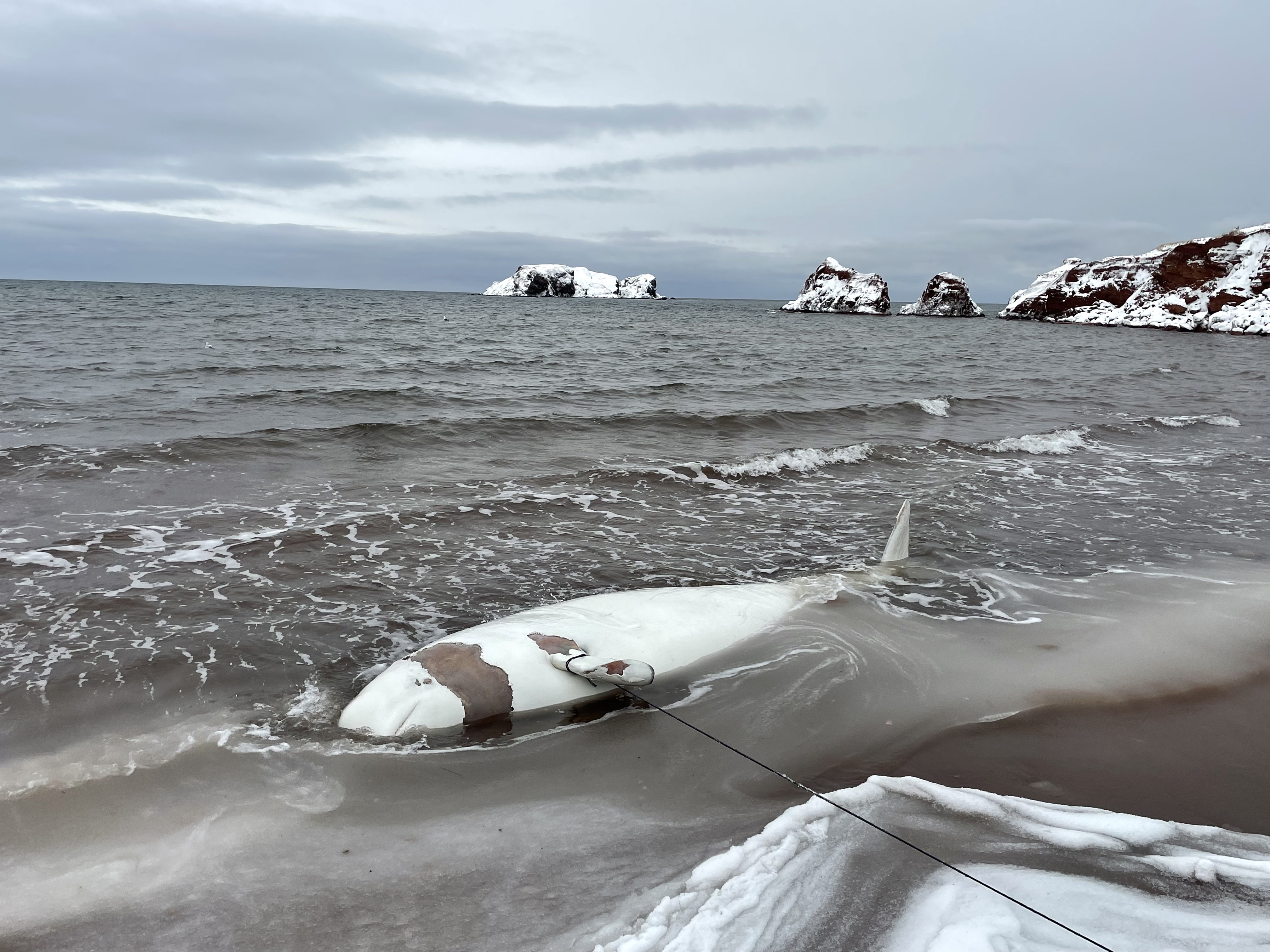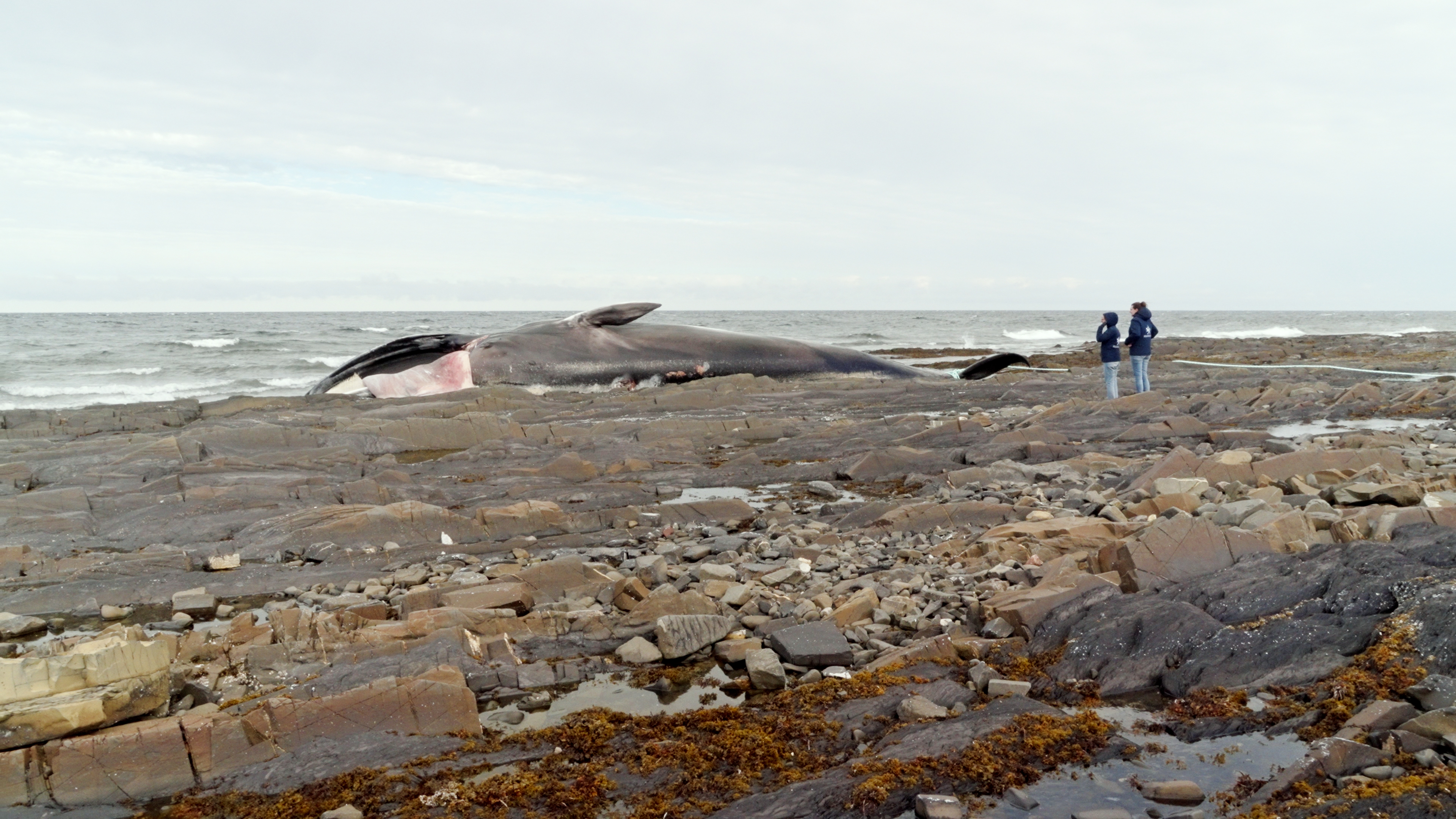On December 10, the Marine Mammal Emergencies Call Centre was contacted by a media source: it had received a report of a group of fifteen harbour seals on the thin ice near the mouth of the York River in Gaspé. Another report on Saturday: Residents of Saint-Irénée in Charlevoix contacted Sûreté du Québec to report the presence of a seal that had been basking on the bank for several hours. When a man approached who wanted to push it back into the water, the animal became aggressive, growled and showed his teeth. Lastly, this morning in Sept-Îles, a live young harp seal was reported on the beach; concerned for the fate of this animal, one citizen enquired what to do.

These situations are common at this time of year. People are often surprised and concerned to see a seal sitting motionless on the ice or beach for hours and want to help them. A seal on shore is perfectly normal, however! This behaviour is part of the seals’ life cycle, who divide their time between land and sea. Often, the animal remains on shore for several hours or even a day or two before returning to the sea. They might be adult seals that need to rest after migrating, as is often the case in winter in the case of hooded seals and harp seals. If they are young pinnipeds such as whitecoats (harp seal pups), they also rest a great deal out of the water to concentrate their energy for growing. Most of the time, they are unaware of the various dangers lurching and don’t respond to an approaching human, which makes them vulnerable to the behaviour of local residents.
“A seal… in Montréal?”
Yes, it’s possible! Every year, sightings are recorded in the Fluvial Section of the St. Lawrence, namely in the regions of Charlevoix, Québec City, Trois-Rivières, and Montréal. How can the presence of these marine mammals in these “unusual” places be explained? It is believed that these are individuals that are a little more adventurous than their peers, probably in search of food sources. Most of the time, the animal leaves the area on its own, and it is assumed that it eventually finds its way back to the saltwater sectors of the St. Lawrence.
How can you help them?
 The Quebec Marine Mammal Emergency Response Network requests collaboration from the public. If you see a seal on shore:
The Quebec Marine Mammal Emergency Response Network requests collaboration from the public. If you see a seal on shore:
1) Leave the animal alone, maintain your distance (minimum 50 m) and keep dogs on a leash. Avoid groups of people crowded around the seal and do not attempt to interact with the animal.
2) Please report the incident to 1-877-722-5346 if the animal is in a busy area or in the presence of people not complying with these guidelines.
3) Remember that it is illegal to touch, feed, return to the water or kill a marine mammal without a licence issued by Fisheries and Oceans Canada. Those who violate these regulations are subject to fines.
In short, seals do not need our help! These carnivores, despite their innocuous appearance, can bite and transmit diseases. Additionally, stress caused by humans may reduce the chances of survival in young seals.
Thank you for your precious cooperation!
To learn more:
Interview (in French) with Josiane Cabana, spokesperson for the Quebec Marine Mammal Emergency Response Network, on the presence of harbour seals in Gaspé on December 10, 2015, Radio-Canada.





